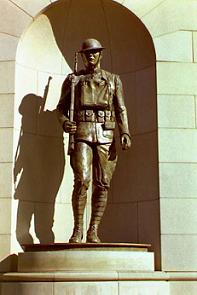

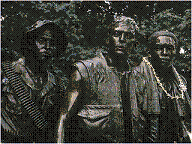
Never Forget
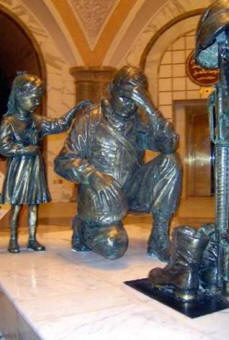
When you start to think of the lifestyles these guys live, there's a good chance it's not going to be so healthy. One of the things that always fascinated me is that these guys didn't die earlier.Yeah, I hear the potential for lead poisoning is fairly high in that line of work.
Even in Virginia, one defender reported that juries impose sentences that are more lenient than the guidelines recommendations in some cases.205Okay, I see four possible reasons to make that claim.
205 "I love jury sentencing because I find it is easier to work with, and I can have more impact on the jury. The jury is more honest, and less influenced than judges, when they are properly prepared. I trust the jury. The guidelines were written the way they were to discourage jury trials. . . . I always demand a jury. Not all defense attorneys would agree with me. They don’t go to trial as much as I do. Q: Why not? A: Because they’re punks. They don’t have enough confidence. . . . I still run across some prosecutors who will say, 'If you don’t take this deal, I'll take this to the jury.' And I give them my standard response, 'Oooh, I’ll have to sleep with my night light on I'm so scared.' I love the jury. I’m not intimidated by it. So many defense attorneys do not do an adequate voir dire; some, to this day, never even ask one question. Not one question. That’s so incredibly stupid. Lazy people don’t go to jury trial.".
Experts are of the opinion that as the number of retired people rises in Japan so will geriatric crime. According to Takeshi Kitashiba, a former psychologist with the Metropolitan Police Department in Tokyo, "2006 is the first year of the Neo-Geriatric", as many baby boomers retire this year. Talking to the Japanese weekly Shukan Gendai, he commented that "Neo-Geriatrics are those over 65 who are still fit, healthy and want to get more out of their lives. Without work, they'll be filled with anxiety and there's a likelihood they may turn to crime. Make no mistake, there will be a significant rise in crimes committed by Neo-Geriatrics."It brings to mind roving gangs of grandpops running around terrorizing people and robbing banks.
"Choosing to record only the 'good parts' will make people wonder why this part was recorded and other parts were not recorded," said lawyer Toshio Tanaka, who has formed a group at the bar federation to realize full recording of interrogations.I'd insert some sort of snide comment here except we can't get a requirement that interrogations be taped in Virginia either so I don't think I'm in a position to say anything.
"Eventually, all interrogations would have to be recorded from the viewpoint of warranting voluntary confessions and the credibility of confessions," he said.
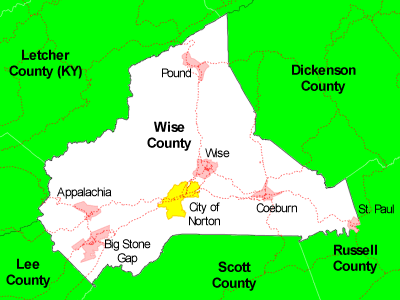
"Indigent defendant is accused of a serious felony that is less than murder. Moreover, the case looks sufficiently complicated that any jury trial will take more than three days. Prosecutor makes an offer for a plea bargain that clearly requires thought. Court appointed council advises accepting the offer, but defendant insists on some time to consider the offer. While supposedly considering the offer defendant writes a letter to the judge complaining that since court appointed council's compensation for the trial will clearly be inadequate, council has a conflict that keeps the defendant from trusting council's advice. Therefore, he has been denied effective assistance of council and the judge should do something."Will the court buy this argument? Not the Virginia courts. Per Webb v. Commonwealth there has to be a demonstration of actual prejudice. In that case an appointed indigent defender had worked 30 hours ($2,700 worth of work) more than the maximum number of hours he was going to get paid for when he filed a pretrial motion for dismissal because
"I am curious to see if anyone reading this thinks that the defendant has a valid argument or one that a court will buy."
(1) the statutory cap on attorneys' fees contained in Code sec. 19.2-163 is unconstitutional,The appellate court rejects all those arguments. Basically, its reasoning is that there must be proof of ineffective assistance and the attorney in this case was not at all ineffective. He may have put thousands upon thousands of dollars of free work into the case but he didn't abandon his client. You just have to read the case to get the full impact. BTW - The extremely capable defense attorney in that case has joined the ranks of attorneys who refuse to take court appointments.
(2) the compensation allowable under Code sec 19.2-163 is inadequate and operated to deny Webb his right to conflict-free and effective assistance of counsel, and
(3) the statutory compensation scheme causes a conflict of interest because it creates a financial disincentive for a lawyer to effectively represent his or her client.
"The power of contempt is the means by which the court enforces its fundamental authority.I'm with the judge for most of that. The contempt power is the judge's strongest enforcement weapon in most criminal cases because they are relatively minor. However, in criminal matters it's not the only one because any defendant who screams obscenities at the judge knows he will get a harsher sentence. The 6 month contempt power pales in comparison when a defendant is facing three charges which could net him a total of 60 years (in Virginia that would be three grand larcenies: theft of items worth $200). However, that's really just a minor quibble because the increased sentence would be a de facto contempt multiplier.
. . .
[T]he failure to pursue blatant perjury and clear disobedience of court orders rapidly leads to a wholesale disrespect for the law."
The power of contempt is the means by which the court enforces its fundamental authority. Courts have no armies to command and no taxes to raise and spend. In a very fundamental sense, the judicial power is the contempt power; and the failure to exercise it becomes a failure of the judiciary.I agree with this statement as far as it goes. A court clearly needs the power to ensure that its procedures are followed and that its orders are obeyed. However, as demonstrated above, I suspect that Judge Warren's view of the "fundamental authority" of the court differs from mine and I think his next section indicates this.
C. Contempt of Court is Critical to Maintaining ourThis seems to assume that a US judge's contempt power is of the same nature as a judge under the British common law. It is not. A monarch gifts these powers to his judges as a means to enforce his will and expand his power. They are freely given and the monarch would expect them to be used liberally as a means of implementing his reign. As members of a democratic republic, we begrudge this power to the members of the bench. It is a necessity given out of a recognition of the realities of the world. As such, we don't expect it to be given wide application. We expect it to be used narrowly and not at all when our legislators have clearly vested a power of prosecution in the executive branch - as they have in perjury charges.
Republican Form of Self-Government
Another essential, but often overlooked, vital characteristic of the contempt power is the maintaining the republican form of self-government. In America, the people are sovereign. The people have delegated their authority to the three branches of government.
. . .
Hence, the failure to obey the duly executed orders and judgments of the courts, or acts or omissions that impair the orderly administration of justice in those courts, is a direct affront to the republican government.
. . .
[quoting a Colorado case] "It was said in argument by counsel for respondents 'that by the common law every judge was regarded as the direct representative of the sovereign, and upon this fiction the power to punish for contempt was based.' With us the people have been substituted for the crown. The courts are created by the people, and are dependent upon the popular will for a continuation of the powers granted. They are the people’s courts, and contemptuous conduct toward the judges in the discharge of their official duties tending to defeat the administration of justice, is more than an offense against the person of the judge; it is an offense against the people’s court, the dignity of which the judge should protect, however willing he may be to forego the private injury."
Put another way, the failure to invoke the power of contempt when appropriate not only undermines the administration of justice and the rule of law, it strikes at the heart of our republican form of government.
* Authors: Sam Schmedlap and Bobby Bilal, graduates of Podunk School of Law, co-practioners in the area of traffic law based in the State of North Dakota. Sam and Bobby wish to thank CrimLaw Blog for notice of this call for publication and encouragement in our submission.Good luck everyone.

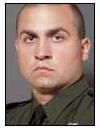
The rule applied in this case is no more logical than its converse would be, i.e., a rule barring the prosecution from introducing evidence of a defendant's guilt if the defendant is able to proffer, at a pretrial hearing, evidence that, if believed, strongly supports a verdict of not guilty. In the present case, for example, the petitioner proffered evidence that, if believed, squarely proved that White, not petitioner, was the perpetrator. It would make no sense, however, to hold that this proffer precluded the prosecution from introducing its evidence, including the forensic evidence that, if credited, provided strong proof of the petitioner's guilt.See, I told ya'll I'd be a great Supreme Court Justice.